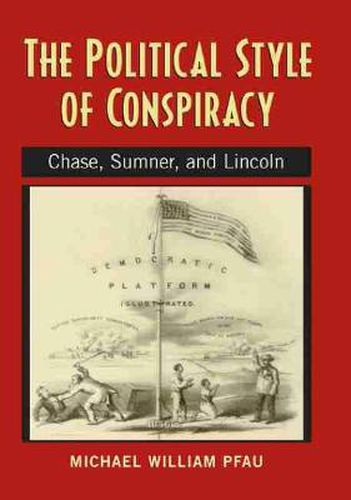Readings Newsletter
Become a Readings Member to make your shopping experience even easier.
Sign in or sign up for free!
You’re not far away from qualifying for FREE standard shipping within Australia
You’ve qualified for FREE standard shipping within Australia
The cart is loading…






The turbulent history of the United States has provided a fertile ground for conspiracies, both real and imagined. From the American Revolution to the present day, conspiracy discourse - linguistic and symbolic practices and artifacts revolving around themes, claims, or accusations of conspiracy - are commonplace. As theories are discussed, they colonize minds in a curious rhetorical process, one difficult to define precisely, but recognizable as a complex of persuasive discourse, language, symbolism, and political setting. Conspiracy rhetoric was a driving force in the evolution of antebellum political culture. It contributed to the Whig Party’s demise and made it possible for diverse interests, including Northern Democrats, to work together to facilitate the growth of the Republican Party’s membership and ideology. The Political Style of Conspiracy analyzes the concept and reality of slave power in the rhetorical discourse of the mid-nineteenth-century, in particular the speeches and writing of politicians Salmon P. Chase, Charles Sumner, and Abraham Lincoln. By examining their mainstream texts, Pfau reveals that, in addition to the paranoid style of conspiracy rhetoric that inhabits the margins of political life, Lincoln, Chase, and Sumner also engaged in a distinctive form of conspiracy rhetoric that is often found at the center of mainstream American society and politics.
$9.00 standard shipping within Australia
FREE standard shipping within Australia for orders over $100.00
Express & International shipping calculated at checkout
The turbulent history of the United States has provided a fertile ground for conspiracies, both real and imagined. From the American Revolution to the present day, conspiracy discourse - linguistic and symbolic practices and artifacts revolving around themes, claims, or accusations of conspiracy - are commonplace. As theories are discussed, they colonize minds in a curious rhetorical process, one difficult to define precisely, but recognizable as a complex of persuasive discourse, language, symbolism, and political setting. Conspiracy rhetoric was a driving force in the evolution of antebellum political culture. It contributed to the Whig Party’s demise and made it possible for diverse interests, including Northern Democrats, to work together to facilitate the growth of the Republican Party’s membership and ideology. The Political Style of Conspiracy analyzes the concept and reality of slave power in the rhetorical discourse of the mid-nineteenth-century, in particular the speeches and writing of politicians Salmon P. Chase, Charles Sumner, and Abraham Lincoln. By examining their mainstream texts, Pfau reveals that, in addition to the paranoid style of conspiracy rhetoric that inhabits the margins of political life, Lincoln, Chase, and Sumner also engaged in a distinctive form of conspiracy rhetoric that is often found at the center of mainstream American society and politics.